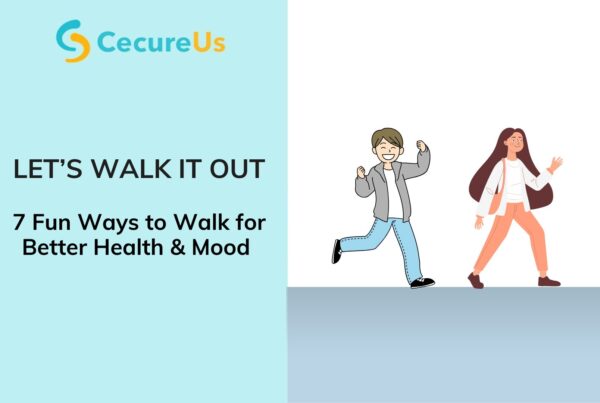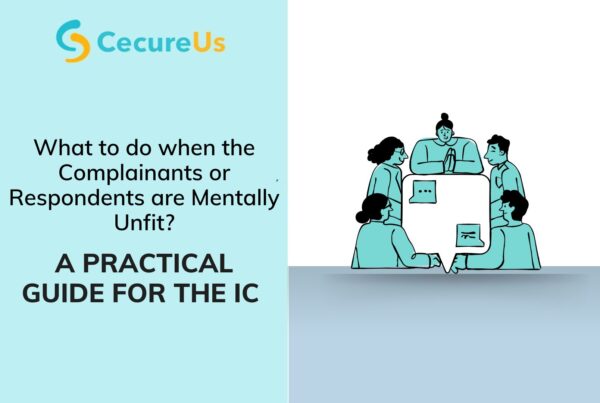
Addressing the Intersection of Disability and Mental Health
The intersection of disability and mental health is a significant yet often overlooked area. Individuals with disabilities frequently face unique challenges that impact their mental well-being, necessitating support from both allies and organizations to foster a supportive environment. Addressing these issues and implementing effective strategies is crucial for promoting an inclusive and equitable society.
In India, the interplay between disability and mental health is often overshadowed by other public health concerns. However, for many individuals with disability, daily life is a struggle with both physical and mental health challenges, compounded by social and systemic barriers. Addressing the mental health needs of individuals with disability is not just a matter of healthcare but also of human rights and social justice. By understanding the unique pressures faced by this community, we can begin to develop more effective support systems and policies to promote their well-being.
The Current State of Mental Health Among Disabled Individuals in India
Research highlights that individuals with disabilities in India experience higher rates of mental health issues such as depression, anxiety, and stress compared to the general population. A study published in the Indian Journal of Psychiatry found that individuals with intellectual disabilities have higher rates of psychiatric disorders compared to their non-disabled peers. The Indian Council of Medical Research (ICMR) and various universities have corroborated these findings, indicating that the lack of supportive infrastructure and pervasive social stigma exacerbate these issues.
Challenges Faced by Disabled Individuals and the Impact on Mental Health
Stigma and Stereotypes
-
- Societal Biases: Disabled individuals frequently encounter pervasive societal stigma and stereotypes. They are often infantilized, perceived as lacking ability, or viewed as inferior and helpless. These negative perceptions lead to marginalization and discrimination, resulting in social exclusion, limited opportunities in education and employment, and inadequate access to healthcare. Constant exposure to such biases significantly impacts their self-esteem and mental health, fostering feelings of isolation and inadequacy. This environment contributes to the development of depressive disorders, anxiety, and suicidal ideations, creating a cycle of emotional and psychological distress.
- Story-based Example: Emily, a talented software developer with cerebral palsy, is often underestimated by her colleagues. Despite her proven expertise, she finds herself excluded from key projects, with her abilities consistently questioned. Over time, this exclusion erodes her confidence, leading to severe anxiety and self-doubt. She begins to dread going to work, feeling like she has to prove herself repeatedly, even though her work consistently outshines that of her peers. This persistent stress contributes to Emily developing depression, impacting both her professional and personal life.
Accessibility Barriers
-
- Physical and Technological Limitations: Physical, social, and technological barriers can restrict the access of individuals with disabilities to essential services, including education, job opportunities, and healthcare. Inaccessible environments, lack of adaptive technologies, and inadequate transportation options can prevent disabled individuals from seeking and receiving the support they need.
- Case Scenario: Michael, who is visually impaired, struggles with navigating his university campus due to the lack of braille signs and accessible online materials. While his classmates easily access the digital resources provided, Michael must rely on outdated technologies that only partially meet his needs. These barriers not only hinder his academic performance but also cause him immense frustration and anxiety. The constant struggle to access information leads Michael to feel isolated and overwhelmed, affecting his overall mental health and academic success.
Healthcare Disparities
-
- Gaps in Service Provision: Disabled individuals often encounter disparities in healthcare, including mental health services. Misdiagnosis, inadequate treatment options, and a lack of specialized care can exacerbate mental health issues. Moreover, the intersectionality of disability with other factors like race, gender, and socioeconomic status can further compound these disparities.
- Case Scenario: Sara, a woman with a hearing impairment, visits her local clinic for anxiety treatment. However, the clinic lacks staff who are trained in sign language, leading to miscommunication about her symptoms. Consequently, Sara is misdiagnosed and prescribed medication that worsens her condition. The lack of accessible mental health services leaves Sara feeling helpless and frustrated, worsening her anxiety and causing her to lose trust in the healthcare system.
Financial Instability
-
- Economic Barriers: Many disabled individuals face significant financial challenges due to limited employment opportunities and the additional costs associated with their disabilities, such as medical expenses, assistive devices, and specialized care. Financial instability can lead to increased stress, anxiety, and depression, as individuals struggle to meet basic needs while managing their health.
- Case Scenario: Carlos, who has multiple sclerosis, faces mounting medical bills that his insurance only partially covers. Despite being highly qualified, he struggles to find stable employment due to workplace discrimination. The financial strain of paying for medication, therapy, and daily living expenses overwhelms Carlos, leading to severe anxiety and depression. He feels trapped in a cycle of poverty and poor health, with no clear way out.
Social Isolation
-
- Lack of Social Support: Disabled individuals often experience social isolation due to physical barriers, lack of accessible social spaces, and societal stigma. This isolation can lead to loneliness, depression, and a decline in overall mental health, as individuals are deprived of meaningful social interactions and support networks.
- Case Scenario: Aisha, who uses a wheelchair, finds it difficult to participate in social activities with her friends due to inaccessible venues and transportation. Over time, her friends stop inviting her to gatherings, assuming she won’t be able to attend. The growing isolation leaves Aisha feeling lonely and disconnected, leading to a deep sense of sadness and hopelessness. Without a strong social network, her mental health deteriorates, making it even harder for her to reach out for help.
Legislative and Policy Framework
- Mental Healthcare Act, 2017
- Focus on Inclusion: The Mental Healthcare Act, 2017, seeks to provide mental health care and services for all individuals, including those with disabilities. It emphasizes the rights of people with mental health issues to access treatment and live with dignity.
- Rights of Persons with Disabilities Act, 2016
- Protecting Rights: This Act aims to protect the rights of disabled individuals and ensure their inclusion and participation in society. It mandates accessibility in public buildings and transport, and provides for special education and employment opportunities.
Moving Forward
Addressing the intersection of disability and mental health in India requires a multi-faceted approach. Enhancing accessibility, combating stigma, and improving mental health services are key to building an inclusive society. Legislative action and awareness are essential for creating a more equitable environment.
For Corporates:
- Inclusive Policies: Ensure accessibility and accommodations for disabled employees.
- Mental Health Support: Provide tailored mental health resources and train staff to recognize and address mental distress.
- Awareness: Regularly conduct training to break stereotypes and foster inclusion.
For Individuals:
- Advocate: Speak out against discrimination and support accessibility.
- Educate: Learn and share knowledge about the challenges faced by disabled individuals.
- Support: Be mindful of mental health needs and encourage seeking help.
Together, we can create a society where disabled persons are fully supported in their mental health.
Please reach out to us for any queries on Addressing the Intersection of Disability and Mental Health.
For more blogs and articles, visit our official website. Contact us for workshops and queries related to POSH, EAP (Employee Assistance Program) , Diversity and Inclusion and Code Of Conduct.




